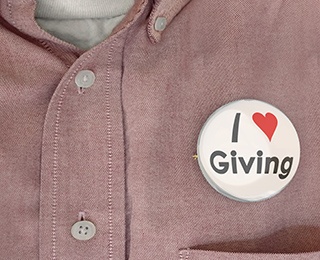Published: March 20, 2018
 As we prepare our tax returns for 2017, we do so with a curious eye on how the new tax law will impact our bottom line in the coming year.
As we prepare our tax returns for 2017, we do so with a curious eye on how the new tax law will impact our bottom line in the coming year.
Among the potential losers are non-profits, who rely on generous—and often tax savvy— men and women for support.
The Tax Policy Center estimates that 21 million taxpayers will stop taking the charitable deduction under the TCJA.
“Of course, people don’t give to charity just to get a tax deduction. Millions of non-itemizers contributed each year under the old tax law and many will continue to do so under the TCJA. However, last November, my Tax Policy Center colleagues Joe Rosenberg and Philip Stallworth estimated the income tax provisions of the House version of the TCJA would reduce charitable giving in 2018 by between about 4 percent and 6.5 percent, or between $12.3 billion and $19.7 billion,” Howard Gleckman writes.
Other tax advisors suggest that the beneficial tax breaks for wealthy individuals may inspire more charitable giving from high-income taxpayers. There are generational differences in giving, too, and Millennials may react differently to giving despite tax incentives compared to the Baby Boomers.
But no one can say for certain. As the year unfolds and charities begin to report year-to-date giving, we will find out the true impact of the new tax law.
But, as Gleckman and others have noted, people give for lots of reasons, not just for a tax deduction.
Why We Give Money to Charities
Whether it’s our alma mater or church, international disaster relief or local food bank, we donate for a variety of reasons.
We may have fond memories of an organization or are a former recipient of a group’s outreach. We may want to share our wealth with those in need, or hold values or religious beliefs that inspire us to be generous.
In a recent study 819 Americans who had given to charity in the past were asked to fill out a detailed survey about why they give. From their answers, researchers came up with five key motivations for giving, which they dubbed TASTE. Yes, getting a tax break is one of the reasons
The other four reasons are:
- Trust — they trust certain organizations will make a difference;
- Altruism — they believe it is important to help others in need;
- Social — they give to causes that matter to someone they care about, such as disease research;
- Egoism — they give for a personal benefit, such as feeling good or for recognition.
The main barrier to giving? “They feel like they can’t afford it,” wrote Sara Konrath, Assistant Professor of Philanthropic Studies, Indiana University-Purdue University Indianapolis, and one of the researchers.
As charitable giving opportunities come across your desk and Internet this year, take time to think about the request and why you give, regardless of a tax deduction.
Giving Time Instead of Money
Along with writing a check, many of us – actually millions of us - volunteer for non-profits organizations. According to the U.S. Bureau of Labor Statistics, 62.6 million men and women volunteered at least once during the 2015 fiscal year.
Just like our financial support, we all have personal reasons for donating our time. Social
Gerontologist Dawn C. Carr, writing in Psychology Today, identified five benefits of volunteering.
- Volunteers live longer and are healthier and happier than non-volunteers.
- Volunteers establish strong relationships and are less lonely.
- Volunteering is good for your career.
- Volunteering helps organizations do good things for society.
- Volunteering gives you a sense of purpose.
Giving Back at Kendal at Oberlin
Residents at Kendal at Oberlin know firsthand the many benefits of volunteering. Since its founding 25 years ago, Kendal’s Volunteer Clearing House has helped match resident interests and expertise with the needs at the nonprofit Kendal and the greater community.
In 2017, Kendal residents and staff volunteered a total of 62,416 hours, with an estimated value of nearly $1.5 million. Kendal resident Anne Elder, who heads up the clearing house, says volunteering is a way to “give back. Our own lives are also enriched.”
 In the past, Molly Kavanaugh frequently wrote about Kendal at Oberlin for the Cleveland Plain Dealer, where she was a reporter for 16 years. Now we are happy to have her writing for the Kendal at Oberlin Community.
In the past, Molly Kavanaugh frequently wrote about Kendal at Oberlin for the Cleveland Plain Dealer, where she was a reporter for 16 years. Now we are happy to have her writing for the Kendal at Oberlin Community.





